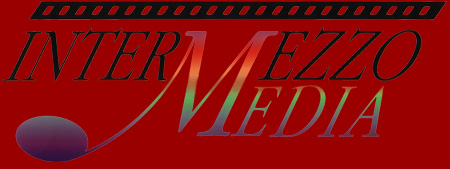HARD TRUTHS AND OTHER MUSIC FOR THE WORKS OF MIKE LEIGH
Caldera Records proudly presents Gary Yershon music for Mike Leigh’s films “Hard Truths,” “Peterloo,” and his stage plays “Grief” and “Two Thousand Years.”
It is rare for an album to feature music written for screen, stage, and concert hall. However, this album connects compositions written for director Mike Leigh, thus bridging different kinds of performance spaces and media. “Hard Truths” deals with Pansy as she struggles to cope with anxiety and depression. “Peterloo” honors the people around Manchester who in 1819 demanded representation and a vote. “Grief” sees a widow in 1950s London struggle with the increasingly hostile behavior of her teenage daughter. “Two Thousand Years” examines the consequences of a secular Jewish family’s grown-up son deciding to become orthodox, and his sister bringing home an Israeli boyfriend.
Yershon’s music for “Hard Truths” focuses on two violas d’amore, concert violas, a flute and an alto flute. The viola d’amore is an instrument rarely used in film scores, but in this case it proved the right choice. When one listens carefully, one can notice that the memorable theme for the violas d’amore is never consistent. For example, the last three notes of the theme change throughout, which provides Yershon’s score with an unpredictability and fragility that seems to mirror Pansy’s character.
In the course of his work on “Peterloo,” Yershon came up with the sound of high bassoon and alto flute in unison. As a result, he had a very limited pitch range in which he could write. This permitted the non-diegetic score to reflect with the film’s folksong-oriented diegetic music. One prominent use of diegetic music is “In Praise of the Weavers,” sung by Dorothy Atkinson as a poor woman hoping for better times. Fittingly, as the protesters of Manchester set out to fight for their rights in the local market square, the melody is played again, this time by the orchestra as a piece of non-diegetic music.
For “Two Thousand Years,” the National Theatre afforded Yershon the budget for just two instruments. In order to pay tribute to the Jewish element of the story, the composer developed several Klezmer-like pieces. With a slightly larger budget for “Grief,” Yershon was able to choose three instruments – viola, double-bass and vibraphone – to capture the somber atmosphere of the play. His concert piece “Ready for Anything” is dedicated to Mike Leigh.
The 61st CD-release of Caldera Records features a detailed booklet text by Stephan Eicke and elegant artwork by Luis Miguel Rojas. The CD was mastered by Richard Moore and produced by Stephan Eicke and Gary Yershon.
Hard Truths
1. Opening Credits (1:12)
2. To Work (0:49)
3. At Work – Streets (0:56)
4. Visitors (2:11)
5. Please (1:36)
6. Eros (1:53)
7. End Credits (5:14)
Peterloo
8. In Praise of The Weavers (2:05)
9. Heading Home – Onwards – The Road to Manchester (1:55)
10. From the Mill (0:50)
11. The Market (0:45)
12. Mail Coach (0:40)
13. Across the Moors (1:42)
14. Middleton (1:04)
15. To the Fields (1:07)
16. Aftermath (7:04)
Grief
17. Monday Morning, October (0:29)
18. Saturday Afternoon, November (0:35)
19. November, Evening (0:43)
20. Weekday Afternoon, December (0:50)
21. A Few Days Before Christmas (0:47)
22. Christmas Day (0:41)
23. September Mayhem (1:38)
Two Thousand Years
24. Overture (0:48)
25. Restrained (0:45)
26. They’re Home (1:26)
27. Say Something (0:40)
28. Scene Change Act Two (1:02)
29. Dave Arrives (0:45)
30. Ready For Anything (8:56)
| Formato | CD |
|---|---|
| Autore | Yershon Gary |
| Etichetta | CALDERA RECORDS |
| Data pubblicazione | 2025-01-24 |

